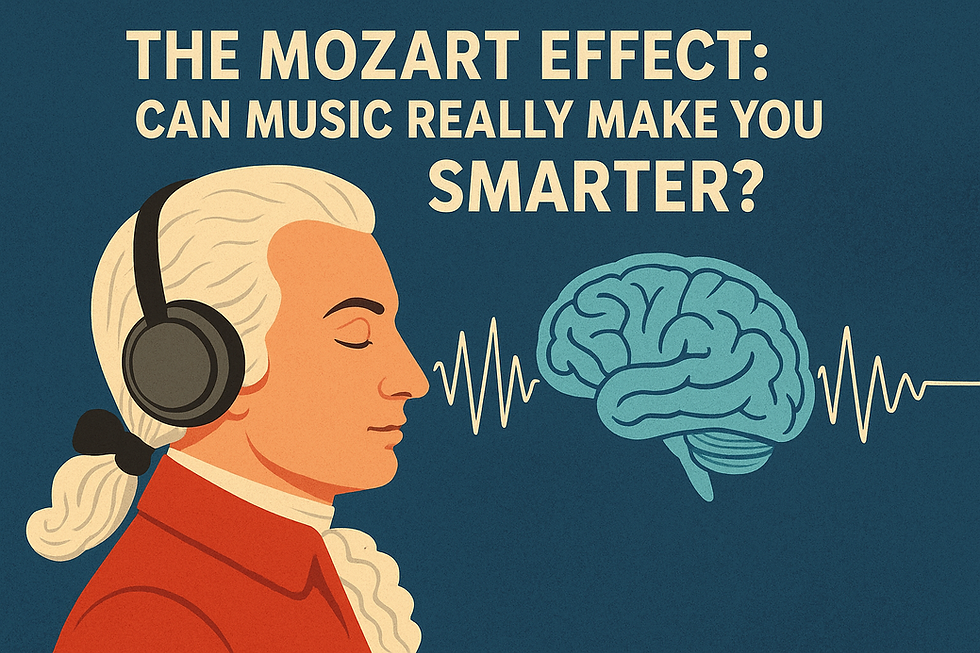"Stop Guessing: Concrete Ways to Measure Your Music Learning"
- Sharanya naidu
- Jun 19
- 4 min read
Updated: Jun 27
We all dive into music for the joy of it – the thrill of a new melody, the satisfaction of a tricky rhythm finally clicking, the sheer fun of expressing ourselves. But amidst the practice sessions and the pure enjoyment, a common question pops up: Am I actually getting better? How do I know I'm truly learning and progressing?
This isn't about rigid grading or scary exams (unless that's your chosen path!). It's about assessing your music learning in a way that's helpful, encouraging, and ultimately, helps you grow. Think of it as your personal compass, guiding you on your unique musical adventure.
So, how can you effectively check your own progress? Let's explore some key areas!

1. The Hands-On Test: Can You Play It?
This is often the most immediate indicator. If you struggled with a piece or exercise last week, and now you can play it (or you're much closer), that's clear, tangible progress!
Try This: Keep a simple practice journal. Jot down the pieces you're working on and how well you can play them at the start of your week. Revisit them a few days later and note the improvement.
What to Look For:
Accuracy: Are you hitting the right notes and chords consistently?
Rhythm: Is your timing steady and correct? Do you feel the beat?
Tempo: Can you play it at the intended speed without falling apart?
Fluency: Does it flow smoothly, or is it still a stop-and-go effort?
2. Beyond the Notes: Sounding Musical
Music isn't just about hitting the right notes; it's about making those notes sing. This is where true understanding and artistry begin to shine.
Try This: Record yourself! It might feel a little awkward at first, but listening back objectively reveals so much about your sound and expression.
What to Look For:
Dynamics: Are you playing louds and softs effectively, giving the music shape?
Phrasing: Does your music have a natural rise and fall, like a conversation or a story?
Tone/Timbre: Are you producing a pleasing and consistent sound on your instrument?
Emotional Connection: Does your playing convey the feeling or mood of the music?
3. The "Aha!" Moments: Understanding How Music Works
Music learning isn't just about physical execution; it's also about mental comprehension. Do you understand why certain notes sound good together, or how a chord is built?
Try This: Can you explain what you're doing? If you're learning about scales, can you explain what a major scale is and how it's constructed?
What to Look For:
Applying Concepts: Can you use a new chord progression in your improvisation, or identify intervals in a piece you're listening to?
Problem-Solving: When you encounter a difficult passage, can you break it down using your theoretical knowledge (e.g., identifying the key, understanding the rhythm pattern)?
Connecting the Dots: Do you see how different musical elements (harmony, melody, rhythm) interact and support each other?
4. The Long Game: Remembering What You've Learned
True learning means something sticks! Can you still play that piece you learned last month, or recall that scale you practiced weeks ago without looking?
Try This: Make it a habit to regularly revisit old material. Don't just move on to the next new thing. Play through a piece you learned a few weeks ago.
What to Look For:
Memory: How quickly and accurately can you retrieve and perform previously learned material?
Consistency: Are you able to perform a piece just as well (or even better) after some time away from it?
5. The Mirror: Feedback from Others
Sometimes, an outside perspective is incredibly valuable. Your teacher, a bandmate, or even a supportive friend can offer insights you might miss.
Try This: If you have a teacher, actively ask for their feedback. If you play with others, ask them what they notice. Don't be afraid to perform for friends and family – even informally!
What to Look For:
Constructive Criticism: Are there consistent areas for improvement that others kindly point out?
Encouragement: Are people noticing your progress and effort? This can be a huge motivator!
6. The Joyful Metric: Your Own Enjoyment and Motivation
This might seem less "academic," but it's absolutely crucial. If you're feeling more engaged, more confident, and more excited about your music, that's a huge sign of positive growth!
Try This: Take a moment to reflect on how you feel during and after practice sessions.
What to Look For:
Increased Confidence: Do you feel more comfortable tackling new challenges?
Sustained Motivation: Are you eager to keep practicing and exploring new musical ideas?
Pure Fun: Are you simply enjoying the process more and more? That's the best sign of all!
Bringing It All Together
Assessing your music learning isn't about judgment or perfection; it's about understanding your unique journey and celebrating every step forward. Celebrate every small victory – mastering a new chord, playing a scale smoothly, finally understanding a tricky rhythm. Be patient with yourself, embrace the process, and remember that every note played and every concept grasped moves you further along your incredible musical path.
Happy practicing! What are your favorite ways to assess your own musical progress? Share your thoughts in the comments below!



Comments